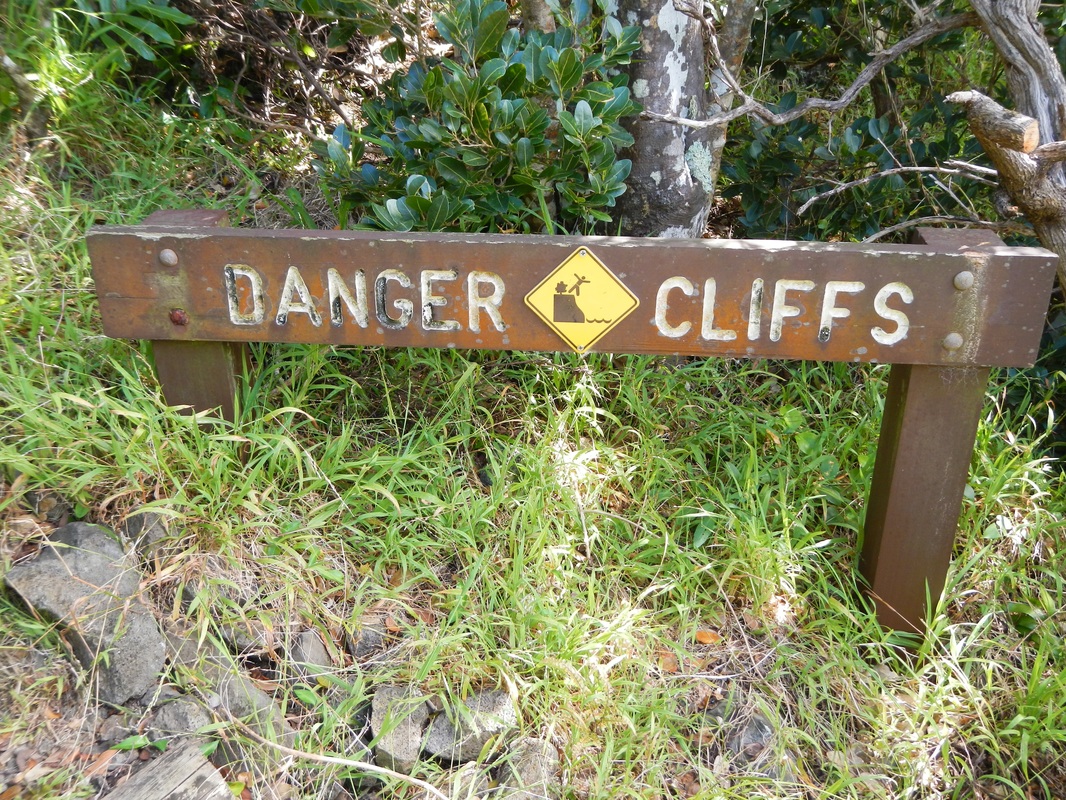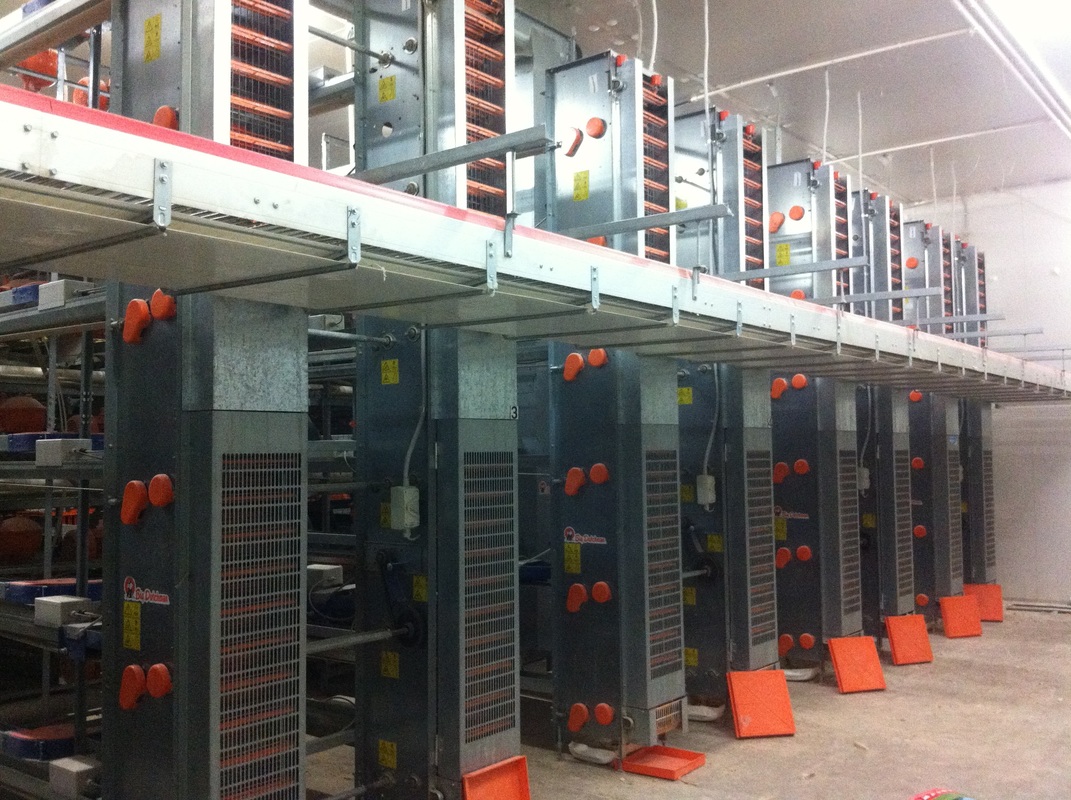|
Building a business from scratch is hard work. There are so many things you need to do, so many things to organise and so many things to make happen, often with no idea as to how any of it should be done. Where do you start? In what order should you do things? These are just some of the many and varied problems when developing a business from scratch and shaping it so it grows the way you want it to.
Consequently, not only do you have to decide in what direction you want your business to head, but how all the moving parts must operate for that to actually happen. Sometimes it feels as if you’re trying to spin a collection of plates on thin metal poles. This is a classic circus act trick and if you’ve ever been to a circus and have seen someone doing this, it’s amazing. If you’re in business for yourself, the reality of the spinning plates being your world, starts to become clear. It really is amazing to watch! One plate slows down and the performer has to run over to speed it up so it's going fast enough for it to balance on the thin metal pole. By the time he has that plate up and spinning again, the next one is starting to slow down and wobble awkwardly. So once again the performer has to run to it and speed this one up. The performer continues to add more and more plates on thin metal poles to the act. As he starts each one, another one slows down and starts to wobble. This one urgently needs his attention and once sorted, another plate needs his attention. This seemingly endless act of plate spinning ends in one of two ways. With all the plates up and running smoothly, the performer calmly walks along and removes each plate from its pole and neatly stacks them all up. The other way, the plates end up smashing on the floor one after another in a hideous disastrous mess. However, any good performer is not to let this happen and will do everything to keep those plates spinning. This is a perfect analogy for building a business. There are so many moving parts. It comes down to priorities. What’s your current priority? What needs to be done right now to make sure that you keep that part of your business going just long enough to get the next piece in motion? In real life terms, this is called crisis management and crisis management is never good. With a significant amount of experience in crisis management myself, it's not a place in which I like to spend much time. A crisis is a point at which an organisation encounters a significant disruption to normal operation. However, if your normal business is drowning in constant crises, then as soon as you solve one crisis you just find yourself falling into the next one, you need to carefully examine the way in which you're doing business. Operating constantly in crisis mode is unsustainable and something will eventually give. However, when you’re building something completely from scratch and a lot of it you’re having to make up as you go, what feels like a crisis is often not. It's just the way a new business is and we’re not used to that feeling and people often believe that everything must be done, all at once, right at this very moment for the business to succeed. The reality is however, if you try and get everything done all at once, you’ll never succeed in getting anything done at any point in time. Therefore, it’s a matter of setting clear goals and priorities. The size of the goal doesn't matter, but what does matter is the mindset and approach you take as you start chipping away your big goal. When staring up at a seemingly insurmountable mountain, you can either give up because it looks too big to climb, you can run around in a panic worrying about all the things you must do before you can climb the mountain, or you can just start climbing. It's the people who just start climbing and little by little make their way up the mountain that in the end succeed. When you look at your business from the same point of view and divide the massive end goal up into small manageable steps, the path toward success becomes much clearer. With a persistent mindset that ‘I’m going to take this first step, then I’m going to make it to that first ridgeline. At the ridgeline, I’m going sidestep around till I find the next ascent, which connects me up to a great stable rock face with some solid footings which will help me to take the next step, and the next, and the next until I’ve reached the summit.’ Approaching any goal, be it personal or business in this methodical and relentless manner, helps to remove the crisis mindset that is so often holding many great entrepreneurs back from success. This doesn't mean you won't encounter a crisis, an avalanche or a yeti along the way, but it does mean that through taking all of these small steps along the way and working towards your end goal consistently, you can conquer any mountain. When you’re building your business and, like the performer with too many spinning plates, you’re struggling to keep it together, step back and instead of looking at the mountain ahead, simply focus on what your next step needs to be. Once you decide what the next small step is and you’ve gone and done it, feel happy in the fact that you’ve done everything you need to, to ensure you reach your end-goal. The simple act of taking the next step, has chipped away at that mountain of a goal and all those little chips start to build momentum towards whatever you’re trying to achieve. Eventually, each step and each little chip will ensure that at the end of the day you will conquer the mountain in front of you.
0 Comments
You promised us a Scandinavian saga style opera on 1st Jan! What Happened???
Well that’s a fair enough question and whilst I apologise to my 10s of readers who were eagerly anticipating the whole saga to begin at the start of the new year and play out in all its epic glory, instead at the time I was busy getting snowed in on my trip to the US as I explored opportunities and went to a Village People concert! Yes, they’re still alive, well, some of them at least and they didn’t miss a beat, although they were sucking down oxygen from small canisters between songs, but that’s understandable as the concert was in a town about 2,500m above sea level. The mood was electric, as everyone in the entire auditorium danced and sang to the encore performance of YMCA! It was a great night! I did promise singing after all! So why haven’t I written the blow by blow account of building a business from scratch? Well for one, if I wrote a daily account of everything that happened, which I did to begin with, there would be lots of repetition, dull moments and swearing. What’s my solution to this? The easy solution is that I’m going to hold off on doing the daily blog, or even a weekly blog of the saga of building a business and instead condense this down into a book. Oh crap, not another business book! Yeah… another business book, but hey, I’ll probably make it into an audio book so you can listen to the saga, rather than having to actually read it. It makes it easier to include singing in it as well. In the book however, I won’t tell you what you should do in business. I’ll just be reflecting on my own experiences and from this I’ll let you decide what course of action you need to take for yourself. With everything in life, there are many ways to approach a problem. If for example I’d listened to all the advice I’ve been given about business over the past two years from all the many willing advice givers, I probably wouldn’t recognise my own business and it’d be a bastardised mess filled to the brim with other peoples’ ideas, goals and expectations. If I wanted that, I’d just work for public service. Building a business is one of the most challenging, frustrating, yet rewarding things you can do and as such, the story deserves a lot more attention than a few blog posts and later in the year, it will start to take shape. In the meantime, I’ll just keep posting away about random things which excite me, annoy me or simply make me laugh. Teaching is hard work. Sure you get great holidays, but they’re both well-deserved and absolutely essential. Having said that, why is the first week back after a break so exhausting? If you work for a school that’s anything like the schools for which I’ve worked, most of the term you’re running at a supercharged pace. Usually this pace during term time is ok, however, for me, the start of every term is particularly taxing and I put it down to compulsory meetings about absolutely nothing.
There's nothing more boring and draining than sitting in a pointless meeting listening to someone rubbish on about strategic plans for the department. In my experience, these have been nothing more than pointless time wasting activities in which nothing is achieved, or if something is possibly decided as perhaps a good idea, the good idea is deferred to a committee or held off until ‘later.’ Everybody at the meeting knows that ‘later’ means never! So why is this? The failure to achieve anything at all is completely counter to what teaching is actually about. Teaching is about everyone learning new things and about getting things done. It's about moving forward, about improving oneself and growing! So why is it so hard for this to happen within a school? As educators, we should be at the forefront of innovation and making things happen. Yet the overall culture of schools tends to be hell-bent against new ideas and innovation. The sad fact is that the majority of the education system in Australia is still stuck in the 19th century. Principals who should have retired when Mr Squiggle was still drawing his upside down master pieces just keep hanging on to what worked ‘back in their day!’ Well their day has come and gone and now with Australia falling behind Kazakhstan’s educational standards, something has to change. But if the top down approach isn't going to work, who's going to change it? Well you have to! If there's ever a time to get to and do something, it's now! Every time you have a good idea that could improve the education of your students, then make it happen. You might get told no five times, but don't give up. If you really want to make something happen, then it's up to you to find a way to do it. It's time to be bold and push the boundaries. Too often I've seen teachers spoon feed kids the answers to everything just so they get results, but this shows a complete lack of innovation and is ultimately damaging to the student. Sure they might get a good result on one thing, but then they become dependent on the teacher giving them everything. The same goes the opposite way. The teachers who are prepared to spoon feed their students everything, are the same ones who put road blocks up to new ideas and innovation. You know the ones I'm talking about because someone's name had just popped into your head. On staff development days, they're the ones ready to kill off all good ideas because it's uncomfortable to them to try something new and something different. After all, they've just got back from the holidays so they couldn't possibly do something new so soon. They're great with the excuses! However, anything worth doing comes with challenges. To achieve great things, you need to be bold and it will feel uncomfortable, but it's so worth it. To kick off this new academic year, don't give up on your bold ideas. Make them happen! No matter how grand the challenge might be, you can find a way! After all, it’s about developing the best educational opportunities for your students, through which you can help everyone to achieve great results. Validation has a pretty clear definition. You're basically making sure something works. If it's at the airport, your passport is validated to make sure you are who you say you are. With some jobs, your uni transcripts are validated to ensure that you’ve got the results you needed. However, in the tech world, it’s a term which can be easily used and abused. Sure everyone wants to validate that their great idea is useful and people will use it, but often the unanswered question is, will they pay money for it?
The idea of monetisation is an assumption that is often an afterthought and a case of ‘well if we get enough people onboard using and liking the platform for free, then they’ll be happy to pay for eventually’. Whilst in some cases, this has worked where businesses have been able to provide a basic service for free and then paid business services, this isn’t always the case. It's like running a café for free. You get to have as much coffee as you like, but if you want to have food with that, then you pay. I’d have tons of customers, but I'd be broke very quickly, unless I raised capital, but I won't go into that again. Many tech startups gather users as their method of validation, which is one measure. You can have a bunch of users that like or love your product, but if they're not going to pay for it, your business isn't going to be around for very long. As always, there's exceptions to the rule on this, but the harsh reality for the majority of tech businesses is that they need paying customers, without which you’ll need to be finding yourself another job. This is why you need to validate your idea on both a user level and a commercial level. If you can't answer the question, ‘How do you make money with this?’ then don't waste your time and money building it. My first experience in the tech world was like this. My brother had a great idea to make livestock markets more transparent and efficient. It was an awesome logical idea which hadn't been done before. Validation testing showed that farmers wanted a better way to get and compare prices. Meat processors were keen to modernise practices. The problem for me however, remained … How was this going to make money? Having run another business, I was well aware of the need for paying customers. I wouldn't have had the business for six years before selling it, if I hadn’t had great regular customers coming in each day and paying for the products and services we provided. With this livestock idea, I sat in meeting after meeting being told, “Don't worry. This is how you can eventually charge users for your service.” The grand sweeping statements of yeah, we can do this and that and charge this customer for this and then you'll gather so many users and market data. The valuation of your business will be X. I unfortunately sat there silently, listening to this crap and thinking, ‘This is so stupid,’ these people have no idea. However, I wanted to support my brother in his venture. I stupidly assumed because he knew the industry far better than I did, it would work. In hindsight, I should have said something at the time. That nagging thought in my mind that nobody would want to pay for this, proved to be correct. Whilst the idea was great and people liked it, it was the sort of platform that should've been done as an internal project for livestock companies or meat processors to create value thorough increased efficiencies, not as a third party project. The cost to implement this with the geographically diverse customers and tailor it for their systems, proved also to be prohibitively expensive. However, despite this being an expensive lesson, it was worth it because from this I've been able to claw away a lot of the fantasy tech industry crap to ensure anything we do now has a paying customer business base from the very start. I've had countless good ideas before and after this project, but since I couldn't work out how to make money from them, they were all archived into the business ideas folder of my laptop as a reminder. You can have a great idea, but turning it into a business is a whole other thing. So for your next tech idea, or any business idea, when you're developing your business plan, the most important thing to focus on is who is going to pay for this and how much will they be willing to pay? Once you have this locked down, you’ll be able to see if this is going to be a total waste of time, or an amazing viable business! Often in life, we find ourselves in situations where you get asked something by a friend and in hindsight you probably should've said no. I found myself in one such situation a few years ago. I was doing some volunteer work in my hometown of Tamworth when one of the committee members who owns a chicken farm, asked me if I'd like to come and help move some chickens. ‘How hard could that be?’ I thought. Move a few chickens from one shed to another, easy! At the time, I'd been doing a few casual jobs, as well as the volunteer work so a few more dollars and the offer of pizza for dinner was a tempting offer I didn't want to knock back.
“Sure, be happy to help out!” I replied, not knowing what exactly I was getting myself into. But hey, let’s not forget the aforementioned pizza! That evening I drove out to the property, which was about 20 minutes out of town. Now it's funny what goes through your mind when you're not sure what you're getting yourself into. I had visions of picking up nice soft little chickens and placing them in little tubs and carrying them a short distance into another shed. I’m not entirely sure why I thought that, but that was my impression of the job. Sadly, this was not the case… On arrival, I saw a scruffy looking crew of chicken movers and I immediately felt overdressed in my jeans and T-Shirt. I did wear old jeans, just not old enough. My induction was swift and to the point. Grab six chickens with each hand and load them in the crate. “Ok… How many are there?” I asked “5000!” was the reply. “Oh crap,” I thought as I walked into the shed to see thousands of chickens before me. Well it was too late to turn this down and this was certainly a new challenge for me! So I jumped right in and started grabbing chickens by the legs. The whole thing was really well co-ordinated. There were the catchers, who would catch the chickens and then hand them on to the collectors. The collectors would ‘collect’ the six chickens in each hand, then carry them over and load them into the crates. The crates would then be loaded and stacked onto the back of a truck. This was hard work! It was summer and the evening air was hot. Add to this, the dust in the shed that'd been kicked up by the commotion, the smell, the noise, the pecking, the scratching and the chicken poo all made this the weirdest and hardest night of physical work is ever done. Everyone kept changing roles of catching, collecting and loading crates. After a couple of hours of work, the job was completed. The shed was empty and the huge truck was fully laden with 5000 enormously noisy chickens. My work here was done! Well… not quite. Now it was time to unload them all. We drove the truck to the other side of the farm to another shed where we proceeded to unload the crates, stack them onto trollies and then take all the chickens out. Crate after crate I lifted, getting covered with more and more chicken crap. Another couple of hours later, the truck was empty and I was trashed. I was so tired I'd forgotten about the pizza! But when it arrived, I sparked back to life! It was so worth it. Although I couldn't even look at the chicken pizza without cringing, I hungrily munched several pieces. Looking down, my hands were scratched to pieces, my clothes covered in blood and chicken crap and I couldn't even begin to describe the smell. I needed to get home for a shower! Just as I was leaving, my friend said, “Thanks for helping out tonight. That's a good start. We've only got another 15,000 to move. So, same time tomorrow?” Exhausted, I stared back blankly… and with a smile replied, “Sure, same time tomorrow!” This is a bit different in some ways from what I usually talk about. However, at the same time it's exactly what I'm on about. I was watching a documentary on Twisted Sister the other night. For those of you who don't know who they are, they're a 70-80s glam rock band that took stage performance to the next level. Google them and watch some of their film clips. My two favourite songs are We’re not gonna take it! And I wanna Rock! There pretty cool film clips, especially if you don't like classrooms and psycho teachers! If only this happened when I was at school! Anyway, even though they’re not one of my favourite bands, they have such a fascinating history of adversity and rising to the challenges that were constantly thrown up in front of them. It shows how such drive and determination paid off, despite what seemed to be a world conspiring against them at every turn. From the start, they were weird! A bunch of glam rockers dressed up in outrageous costumes and performing on the fringe of the rock scene. Unlike many performers today who think the only way to get their big break is through a contest, they played the pub scene in New York State. Despite everyone having rough and quiet beginnings, not knowing if anyone were going to show up to their performance, they quickly found a following of dedicated fans who followed them from venue to venue for each of their shows. They became so popular in the live rock scene, they were selling out shows wherever they went. However, they could land a record deal. If they'd started today they could've recorded their own songs and have them playing on YouTube and ITunes within days. However, the world was a very different place in the 70s & 80s and getting heard by anyone in the music industry was tough. But they continued to play and do what they loved to do. They got their big break where they were going to perform at the Palladium theatre. The show sold out in record time, but one of the band members collapsed and the performance had to be postponed. Instead of record executives who were originally booked in to see the big show, they got secretaries and assistants showing up the next time around. As a result, no record deal was struck. This went on and on. Then they finally managed to sign a deal, but the executive died of a heart attack on the way home. So that fell through. Then they signed a deal in the U.K. But the record company went bust and back home they were black listed by Atlantic Records who threatened to fire anyone who tried to sign them. By this point most people would've given up. Generation Y certainly would have, but not Twisted Sister. They kept going and going and trying to find new ways of opening doors every time one slammed shut in their face. At one point they drove 56 hours across America to play a 29min show! Now that's determination! This endless struggle would’ve destroyed most people and they probably would've given up and begun resentfully making coffee somewhere and claiming they could've been big, but the universe stopped them. Well Twisted Sister grabbed the universe and bent it to its will! Their big break finally came in England when they were doing a live show and did such an epic performance, they got the attention of a British Atlantic Records executive who signed them up for a record deal! Much to the disgust, it would appear of the head of Atlantic Records US, who had blocked an album deal for so long, obviously realising there was money to be made from this deal, he finally capitulated and with this deal their album went platinum! This shows how being tenacious and persistent can pay off. If you truly believe in something, even when the odds are not only stacked against you, but people are actively working against you, if you stick to your guns and keep working towards your goal, you can achieve anything. If it doesn't work to start with, or if doors keep closing, instead of giving up in five minutes and blaming the world for stopping you, keep working on it. Keep knocking on doors. Keep coming back. Keep fighting to do what you love and despite the odds against you, if you stick with it, you can achieve some amazing things. To get the full understanding of the rollercoaster ride they had, watch the documentary We Are Twisted F*@#king Sister. It really is an eye opening journey of how what seemed a hopeless pursuit, ended in a platinum record deal and one of the greatest live performance rock acts in history. |
Archives
December 2017
Categories
All
Head over Here For My Outdoor Ed Blog - Challenge, Experience, Growth! |





